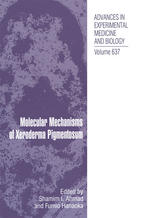

Most ebook files are in PDF format, so you can easily read them using various software such as Foxit Reader or directly on the Google Chrome browser.
Some ebook files are released by publishers in other formats such as .awz, .mobi, .epub, .fb2, etc. You may need to install specific software to read these formats on mobile/PC, such as Calibre.
Please read the tutorial at this link: https://ebookbell.com/faq
We offer FREE conversion to the popular formats you request; however, this may take some time. Therefore, right after payment, please email us, and we will try to provide the service as quickly as possible.
For some exceptional file formats or broken links (if any), please refrain from opening any disputes. Instead, email us first, and we will try to assist within a maximum of 6 hours.
EbookBell Team

4.0
56 reviewsSham im I. Ahma d is a Senior Lecturer at Nottingham Trent University, Nottingham, England. After obtaining his MSc from Patna University, India, and his PhD from Leicester University, England, he joined Nottingham Polytechnic which subsequently became Nottingham Trent University. For about three decades he has been working in the field of DNA damage and repair particularly on Near UV photolysis of biological compounds, production of free radicals and their implications on human health including skin cancer and xeroderma pigmentosum. Also compounds inducing double strand DNA damage, 8-methoxypsoralen +UVA, mitomycin C, and nitrogen mustard have been under investigation including their importance in psoriasis treatment and Fanconi anemia. Additional research included: thymineless death in bacteria, genetic control of nucleotides catabolism, development of anti-AIDS drug, control of microbial infections of burns, phages of thermophiles and microbial flora of Chernobyl after the accident. In 2003 he received a prestigious “Asian Jewel Award” in Britain for “Excellence in Education”. He is also the Editor of the book, Molecular Mechanisms of Fanconi Anemia, published by Landes Bioscience.
Fumio Hanaoka is a Professor at the Graduate School of Frontier Biosciences, Osaka University and the Program Leader of the Solution Oriented Research for Science and Technology of the Japan Science and Technology Agency, Japan. He received his undergraduate and PhD degrees from the University of Tokyo and did his Postdoctoral at McArdle Laboratory for Cancer Research, University of Wisconsin, Madison, USA. He joined the University of Tokyo in 1980 and in 1989 moved to RIKEN Institute as the Head of the Radiation Research Laboratory. In 1995, he joined the Institute for Molecular and Cellular Biology (now known as Graduate School of Frontier Biosciences), Osaka University. His main research interests include the molecular mechanisms of DNA replication and repair in eukaryotes. He served as the President of Molecular Biology Society of Japan (2005-2007) and has been serving on several editorial boards, including Journal of Biological Chemistry and Genes to Cells.